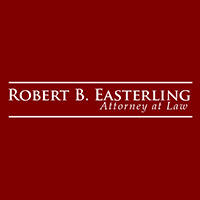King George Bankruptcy Lawyer, Virginia
Includes: Bankruptcy Litigation, Commercial Bankruptcy, Consumer Bankruptcy, Dissolution
Robert Bruce Easterling
✓ VERIFIEDBankruptcy & Debt, Bankruptcy, Estate, Trusts, Wills & Probate
Robert B. Easterling, Attorney at Law, in Fredericksburg, Virginia, offers legal services, specializing in bankruptcy, wills, trusts and estate planni... (more)
FREE CONSULTATION
CONTACTMichelle Lee Watson
Child Custody, Divorce & Family Law, Bankruptcy, Bankruptcy & Debt
Status: In Good Standing Licensed: 18 Years
Matthew Christian Muggeridge
Employee Rights, Family Law, Bankruptcy, Personal Injury
Status: In Good Standing
Robert Theodore Butler
Traffic, Immigration, Divorce & Family Law, Bankruptcy
Status: In Good Standing
Robert John Barlow
Adoption, Alimony & Spousal Support, Bankruptcy, Corporate
Status: In Good Standing


